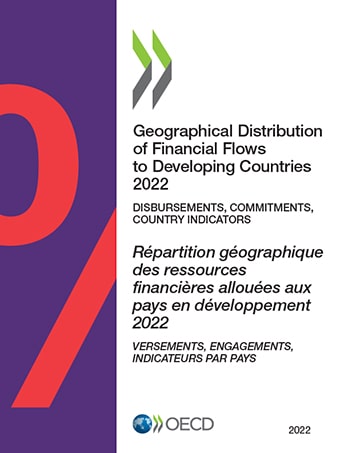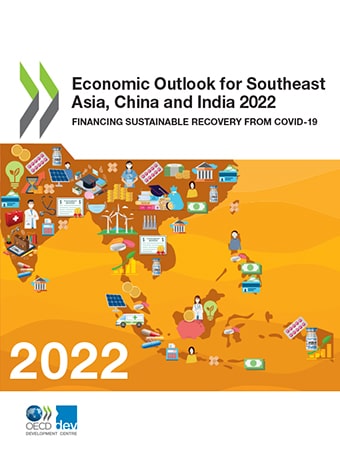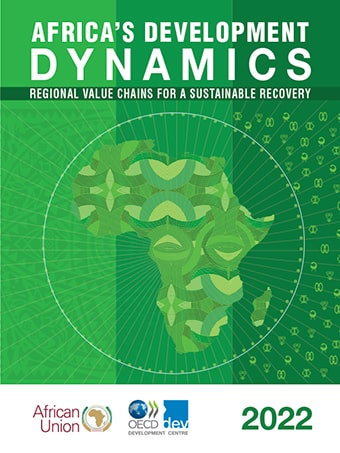Development
|
We work as partners with governments and private actors in developing countries to create a sustainable world where every person has the opportunity to live a healthy and productive life. |
To the global goals and beyondOECD and the Sustainable Development Goals |
Key areas of work
Opportunities and challenges in developing regions
|
We analyse and debate fast-changing global and regional trends with partners around the world to help developing countries design the innovative policies that meet their own particular needs and improve the lives of their populations. |
The new global context
Global emerging trends open up new opportunities for developing countries, but could also undo some of the progress made to date.
More about Perspectives on global development
Latin America and the Caribbean
Following a decade of steady growth, the region needs innovative inclusive-growth policies to escape the middle-income trap and strengthen its emerging middle class.
More about Latin America and the Caribbean
Africa
As the commodity boom ends, the continent needs to better harness its other resources to create opportunities for its population and economy, in line with Agenda 2063.
More about Africa, the Sahel and West Africa Club and the West Africa Brief
Asia and Pacific
The region remains the world’s most dynamic, but improving inclusiveness and well-being, and achieving environmental and other development goals will require new policy approaches.
More about Asia and Pacific
Better policies for development
|
Improving well-being in developing countries requires policies tailored to each context. We help our partners devise and implement their own policy solutions, by offering data and knowledge on policies worldwide, as well methodologies and processes for improving them through peer-to-peer dialogue. |
Development strategies
At the national level, we help policy makers reconcile economic, social and environmental objectives to ensure that their country’s development path is sustainable and that the lives of citizens improve. Country strategies provide the framework for policies that promote not just growth but development in this more comprehensive sense.
At the regional level, we promote spatial approaches and cross-border co-operation. Cross-border regions are important nodes of globalisation and are central to the governance of transnational resources. We inform policy-making and promote regional integration by applying spatial analyses and developing cross-border co-operation.
At the international level, we help enhance policy coherence accross sectors to foster the achievement of development goals.
Development policies
- Environment and development: Integrating environment and climate change into development policies requires new approaches to economic growth, and new practices from donors.
- Food security and nutrition: We promote long-term food security through coordinating agriculture, rural development, education, health, trade and other policies. We are also active in regional efforts to eradicate hunger and prevent food crises such as the Food Crisis Prevention Network (RPCA) in West Africa and the Sahel.
- Fragility not only affects the lives of millions negatively: it undermines safety and equity globally. We closely follow security-development trends in the Sahel and other regions, and bring together fragility, resilience and humanitarian policy and practice to improve well-being for states and societies at risk.
- Gender: We help share research, data and solutions to advance gender equality. We analyse the obstacles rooted in discriminatory social norms. We facilitate an interactive online dialogue and bring together experts to define common approaches in support of equality and women's rights.
- Governance: Strengthening governance mechanisms and practices is essential for the effective delivery of public services and ensuring citizens can hold their governments to account in meeting their development goals.
- Inclusive societies: Investing in people unlocks indispensable resources for progress. Social and human development involves improving the well-being of individuals, but also strengthening social cohesion by tackling inequality.
- Migration: The 2030 Agenda for Sustainable Development acknowledges the positive contribution of migrants to development, both in origin and destination countries. However, the development impact of international migration strongly depends on the policies in place.
- Natural Resources: Resource producer countries and extractive industries are increasingly aware of the need to work together to use the extractive sector as a catalyst for long-term, competitive, inclusive and sustainable development.
- Trade and Global Value Chains: Better integration into global markets can support the transformation of productive sectors in developing countries. We broker policy dialogue and knowledge sharing between them and OECD countries, track aid-for-trade flows and share good practice.
Development co-operation
- Peer reviews of DAC members: Peer reviews provide in-depth examinations of development systems and policies, including lessons learned, in all member countries of the OECD Development Assistance Committee (DAC).
- Development effectiveness: We work with governments, civil society organisations, multilateral organisations and others to improve the quality of development co-operation.
- Evaluation of development programmes: Evaluations support accountability, development effectiveness, and help build strong evidence bases for policy making and learning.
- Tools Insights Practices: Our online peer learning platform explains DAC standards and provides a wealth of real-life examples on how to implement them.
Financing development
|
Effective policies must be underpinned by adequate finance: we engage with governments and private actors to monitor the fast changing landscape of development finance. |
More about financing for sustainable development
Mobilising domestic resources
Tax and non-tax revenue are the primary source of development finance and the way out of aid dependency. The multi-stakeholder Task Force on Tax and Development takes actions to improve tax collection and help build effective states. We also help make revenue statistics available and comparable in non-OECD countries of Africa, Asia and Latin America.
Official development assistance (ODA)
The OECD Development Assistance Committee produces accurate, reliable and transparent development finance statistics. The ongoing modernisation of the DAC statistical system contributes to broader global efforts to monitor international resource mobilisation for implementing the Agenda 2030.
Development finance beyond ODA
Reaching the ambitious targets of the 2030 Agenda requires an estimated USD 3.5 trillion per annum. Public resources, private sector finance, remittances and innovative forms of public–private partnerships all have their role to play.
We monitor flows, provide data, analysis and set standards on financing for development.
We specifically engage with philanthropic foundations and private companies on a number of cutting-edge themes through dialogue networks, and look to policy levers such as blended finance to attract private investment into the countries and sectors most in need.
More about development finance flows beyond ODA
Featured data
Total official and private flows are defined as the sum of official development assistance, other official flows and private flows. This represents the total (gross or net) disbursements by the official and private sector of the creditor country to the recipient country.








